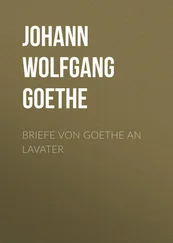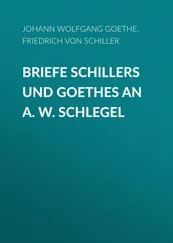Johann von Goethe - The Autobiography of Goethe
Здесь есть возможность читать онлайн «Johann von Goethe - The Autobiography of Goethe» — ознакомительный отрывок электронной книги совершенно бесплатно, а после прочтения отрывка купить полную версию. В некоторых случаях можно слушать аудио, скачать через торрент в формате fb2 и присутствует краткое содержание. Жанр: foreign_antique, foreign_prose, на английском языке. Описание произведения, (предисловие) а так же отзывы посетителей доступны на портале библиотеки ЛибКат.
- Название:The Autobiography of Goethe
- Автор:
- Жанр:
- Год:неизвестен
- ISBN:нет данных
- Рейтинг книги:4 / 5. Голосов: 1
-
Избранное:Добавить в избранное
- Отзывы:
-
Ваша оценка:
- 80
- 1
- 2
- 3
- 4
- 5
The Autobiography of Goethe: краткое содержание, описание и аннотация
Предлагаем к чтению аннотацию, описание, краткое содержание или предисловие (зависит от того, что написал сам автор книги «The Autobiography of Goethe»). Если вы не нашли необходимую информацию о книге — напишите в комментариях, мы постараемся отыскать её.
The Autobiography of Goethe — читать онлайн ознакомительный отрывок
Ниже представлен текст книги, разбитый по страницам. Система сохранения места последней прочитанной страницы, позволяет с удобством читать онлайн бесплатно книгу «The Autobiography of Goethe», без необходимости каждый раз заново искать на чём Вы остановились. Поставьте закладку, и сможете в любой момент перейти на страницу, на которой закончили чтение.
Интервал:
Закладка:
She had drawn my sketch of the poetic epistle towards her, and read it half aloud in a sweet and graceful manner. "That is very pretty," said she, stopping at a sort of naïve point; "but it is a pity that it is not destined for a real purpose." "That were indeed very desirable," I cried, "and, oh! how happy must he be, who receives from a girl he infinitely loves, such an assurance of her affection." "There is much required for that," she answered; "and yet many things are possible." "For example," I continued, "if any one who knew, prized, honoured, and adored you, laid such a paper before you, what would you do?" I pushed the paper nearer to her, which she had previously pushed back to me. She smiled, reflected for a moment, took the pen, and subscribed her name. I was beside myself with rapture, sprang up, and would have embraced her. "No kissing!" said she, "that is so vulgar; but let us love if we can." I had taken up the paper, and thrust it into my pocket. "No one shall ever get it," said I; "the affair is closed. You have saved me." "Now complete the salvation," she exclaimed, "and hurry off, before the others arrive, and you fall into trouble and embarrassment." I could not tear myself away from her; but she asked me in so kindly a manner, while she took my right hand in both of hers, and lovingly pressed it! The tears stood in my eyes; I thought hers looked moist. I pressed my face upon her hands and hastened away. Never in my life had I found myself in such perplexity.
Juvenile Love.
The first propensities to love in an uncorrupted youth take altogether a spiritual direction. Nature seems to desire that one sex may by the senses perceive goodness and beauty in the other. And thus to me, by the sight of this girl – by my strong inclination for her – a new world of the beautiful and the excellent had arisen. I read my poetical epistle a hundred times through, gazed upon the signature, kissed it, pressed it to my heart, and rejoiced in this amiable confession. But the more my transports increased, the more did it pain me, not to be able to visit her immediately, and to see and converse with her again; for I dreaded the reproofs and importunities of her cousins. The good Pylades, who might have arranged the affair, I could not contrive to meet. The next Sunday, therefore, I set out for Niederrad, where these associates generally used to go, and actually found them there. I was, however, greatly surprised, when, instead of behaving in a cross, distant manner, they came up to me with joyful, countenances. The youngest particularly was very friendly, took me by the hand, and said, "You have lately played us a sorry trick, and we were very angry with you; but your absconding and taking away the poetical epistle has suggested a good thought to us, which otherwise might never have occurred. By way of atonement, you may treat us to-day, and you shall learn at the same time the notion we have, which will certainly give you pleasure." This address put me in no little perplexity; for I had about me only money enough to regale myself and a friend; but to treat a whole company, and especially one which did not always stop at the right time, I was by no means prepared; nay, the proposal astonished me the more, as they had always insisted, in the most honourable manner, that each one should pay only his own share. They smiled at my distress, and the youngest proceeded, "Let us first take a seat in the bower, and then you shall learn more." We sat down, and he said, "When you had taken the love-letter with you, we talked the whole affair over again, and came to a conclusion that we had gratuitously misused your talent to the vexation of others and our own danger, for the sake of a mere paltry love of mischief, when we could have employed it to the advantage of all of us. See, I have here an order for a wedding-poem, as well as for a dirge. The second must be ready immediately, the other can wait a week. Now, if you make these; which is easy for you, you will treat us twice, and we shall long remain your debtors." This proposition pleased me in every respect; for I had already in my childhood looked with a certain envy on the occasional poems, 15 15 That is to say, a poem written for a certain occasion, as a wedding, funeral, &c. The German word is " Gelegenheitsgedicht. " — Trans.
of which then several circulated every week, and at respectable marriages especially came to light by the dozen, because I thought I could make such things as well, nay, better than others. Now an opportunity was offered me to show myself, and especially to see myself in print. I did not appear disinclined. They acquainted me with the personal particulars and the position of the family; I went somewhat aside, made my plan, and produced some stanzas. However, when I returned to the company, and the wine was not spared, the poem began to halt, and I could not deliver it that evening. "There is still time till to-morrow evening," they said; "and we will confess to you that the fee which we receive for the dirge is enough to get us another pleasant evening to-morrow. Come to us; for it is but fair that Gretchen too should sup with us, as it was she properly who gave us the notion." My joy was unspeakable. On my way home I had only the remaining stanzas in my head, wrote down the whole before I went to sleep, and the next morning made a very neat fair copy. The day seemed infinitely long to me; and scarcely was it dusk, than I found myself again in the narrow little dwelling beside the dearest of girls.
Gretchen and Her Friends.
The young persons with whom in this way I formed a closer and closer connexion were not properly low, but ordinary sort of people. Their activity was commendable, and I listened to them with pleasure when they spoke of the manifold ways and means by which one could gain a living; above all they loved to tell of people, now very rich, who had begun with nothing. Others to whom they referred had, as poor clerks, rendered themselves indispensable to their employers, and had finally risen to be their sons-in-law: while others had so enlarged and improved a little trade in matches and the like, that they were now prosperous merchants and tradesmen. But above all, to young men, who were active on their feet, the trade of agent and factor, and the undertaking of all sorts of commissions and charges for helpless rich men was, they said, a most profitable means of gaining a livelihood. We all heard this eagerly, and each one fancied himself somebody, when he imagined, at the moment, that there was enough in him, not only to get on in the world, but to acquire an extraordinary fortune. But no one seemed to carry on this conversation more earnestly than Pylades, who at last confessed that he had an extraordinary passion for a girl, and was actually engaged to her. The circumstances of his parents would not allow him to go to universities, but he had endeavoured to acquire a fine handwriting, a knowledge of accounts, and the modern languages, and would now do his best in hopes of attaining that domestic felicity. The cousins praised him for this, although they did not approve of a premature engagement to a girl, and they added, that while forced to acknowledge him to be a fine good fellow, they did not consider him active or enterprising enough to do anything extraordinary. While he, in vindication of himself, circumstantially set forth what he thought himself fit for, and how he was going to begin, the others were also incited, and each one began to tell what he was now able to do, doing, or carrying on, what he had already accomplished, and what he saw immediately before him. The turn at last came to me. I was to set forth my course of life and prospects, and while I was considering, Pylades said, "I make this one proviso, if we all would stand on a level, that he does not bring into the account the external advantages of his position. He should rather tell us a tale how he would proceed if at this moment he were thrown entirely upon his own resources, as we are."
Читать дальшеИнтервал:
Закладка:
Похожие книги на «The Autobiography of Goethe»
Представляем Вашему вниманию похожие книги на «The Autobiography of Goethe» списком для выбора. Мы отобрали схожую по названию и смыслу литературу в надежде предоставить читателям больше вариантов отыскать новые, интересные, ещё непрочитанные произведения.
Обсуждение, отзывы о книге «The Autobiography of Goethe» и просто собственные мнения читателей. Оставьте ваши комментарии, напишите, что Вы думаете о произведении, его смысле или главных героях. Укажите что конкретно понравилось, а что нет, и почему Вы так считаете.












